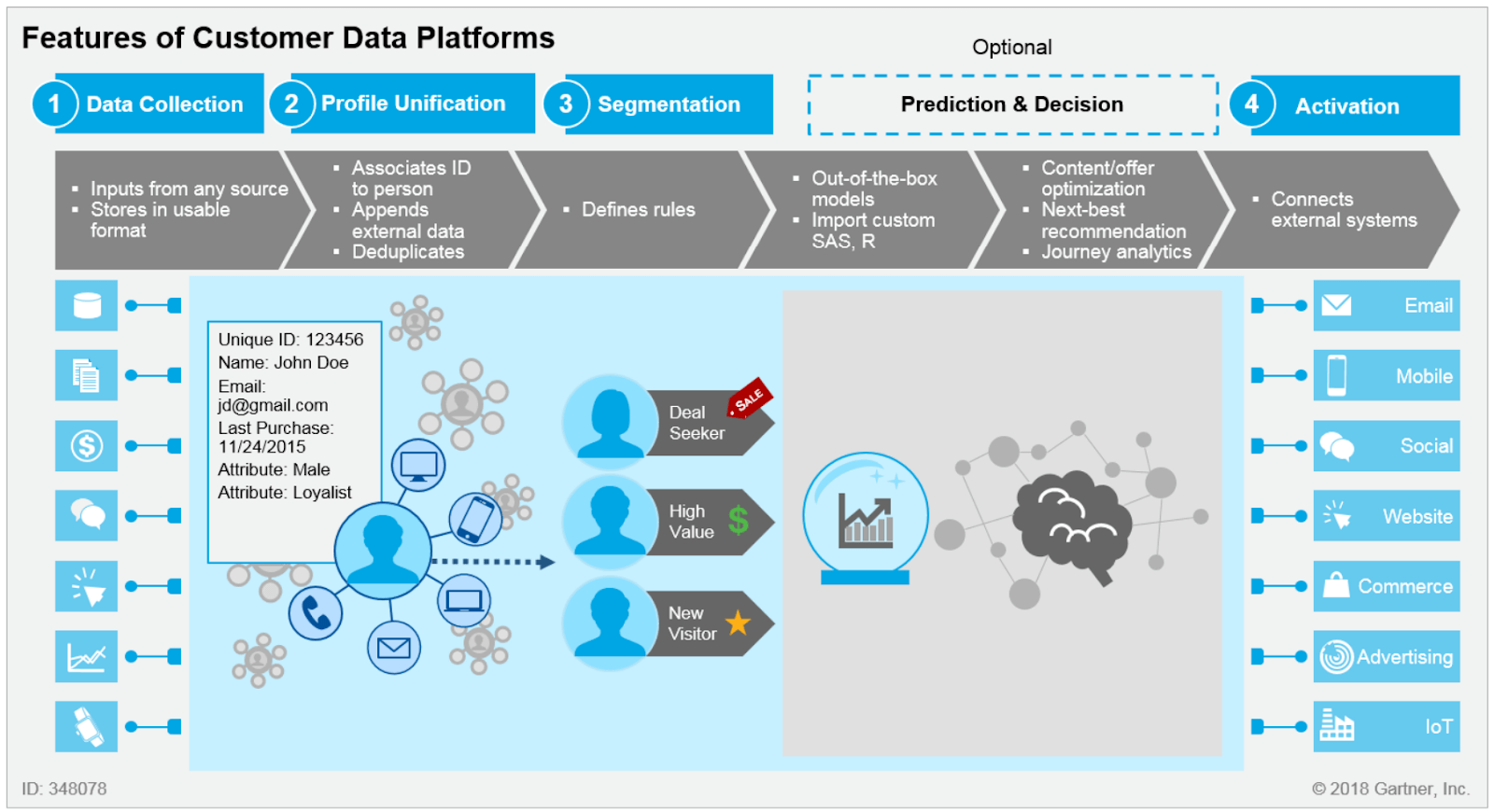Big data 101 for hotels and hospitality businesses
Big data is the fuel today’s businesses run on, with research showing 98% of executives recognize the need to increase their data analytics in the next few years.
Today’s hotel operators are swimming in a sea of data, with every guest interaction generating valuable information. Big data for hotels brings both opportunities and challenges. And it’s important for your business success to understand how to harness this wealth of information to enhance your operations, optimize revenue management, and forge deeper connections with your guests.
The first step in making this transformation is understanding exactly what big data is.
What you will see here
What is big data?
Big data refers to data sets so large and complex that it’s difficult to process and analyze them using traditional data management tools. The term encompasses a wide array of data types, including structured and unstructured data, and it’s available like never before in terms of its volume, variety, and velocity.
Volume: by 2025, it is estimated that 463 exabytes of data will be created each day globally. That’s enough to fill over 200 million DVDs.
Variety: big data comes from multiple touchpoints, meaning data is coming from many different sources and points of interaction.
Velocity: big data changes quickly, because new data is constantly being created and consumed.
The evolution of big data
The shift from analog to digital data collection has been transformative for businesses. In the analog era, handwritten and paper-based records were standard, making data retrieval and analysis a time-intensive hassle.
With the advent of the digital age, however, we entered a realm of seamless information capture, where every customer interaction is effortlessly recorded. This shift has empowered industries like hospitality to tap into data for enhancing the guest experience and optimizing business strategies
How big data works

Source: Gartner
To work with big data, you need the right tools — namely, a Customer Data Platform (CDP).
Businesses collect big data from multiple sources, primarily revolving around customer interactions — both in person and digitally. To make the most of this data, businesses integrate and unify it within a data platform that employs sophisticated analytics tools and algorithms, allowing them to extract valuable insights, patterns, and trends.
This information guides strategic, data-driven decision-making to improve operations and boost business growth. It helps organizations personalize customer experiences, communicating with them via their preferred channels. And it helps businesses stay competitive by enabling predictive analysis that helps them successfully adapt to strategies in anticipation of future developments.
What hoteliers need to know about big data
Big data for hotels refers specifically to the collection of guest-related information, typically obtained through zero-party and first-party data sources, such as reservations, check-ins, social media, online reviews, preferences, and even website interactions. This data includes demographics, booking patterns, guest behaviors, interests, and more. And it’s game-changing for hospitality businesses that use it effectively, helping you drive revenue and stay ahead of the fierce competition in today’s market.
How big data drives hotel revenue
One of the more significant benefits of big data analytics is the enhancement of revenue management. By analyzing your comprehensive price dataset and database of historical booking trends, you can fine-tune your pricing strategies, dynamically adjusting room rates to maximize occupancy, boost average daily rate (ADR), increase revenue per available room (RevPAR), and ultimately drive profit.
Big data is also helping hotel businesses by opening up opportunities to connect with guests and build unwavering loyalty. By analyzing customer behaviors, interests, and feedback, you can create more targeted marketing efforts, and tailor offers and services to individual guest preferences. These types of data-driven campaigns enable you to engage with visitors at just the right moment, nurturing relationships, improving retention, and driving revenue.
Marriott Hotels provides a great example of this. By testing and analyzing different features and functionality regarding hotel amenities, dining options, transportation, and local attractions, Marriott team members could see what was working and what wasn’t. They used data to unlock real-time, personalized experiences, successfully anticipating customer needs and providing offers and services at the perfect moments for conversion. As a result, Marriott is on track to earn $1 billion through incremental revenue and loss prevention.
Why integration is a hotelier’s best friend
Nearly one-third of hoteliers say the effort required for system integration is a top tech challenge. Integrating a cloud-based property management system (PMS), such as Mews, with your other hotel systems is vital for optimizing your big data. This synergy allows data to flow seamlessly between your PMS, customer relationship management system (CRMs), and point of sale (POS) solutions. And it allows you to keep all profile information relating to each visitor in one place, empowering customized experiences and elevating guest satisfaction.
In addition, an integrated system ensures real-time updates on reservations and billing information. It enhances inventory management, revenue tracking, and staff coordination, resulting in improved efficiency and revenue optimization.
Avoid big data pitfalls
Abundant hotel data is a valuable asset, but it can become a liability if you’re not able to effectively collect, analyze, and leverage it. Without the right tools, the continual flow of big data can be overwhelming, leading to decision paralysis. Plus, you may miss out on crucial insights that would lead to higher engagement and revenue optimization opportunities.
To combat this problem, it’s important to invest in solutions that offer hotel data analytics and segmentation capabilities, allowing you to capitalize on the full potential of your data, just as the following two companies did.
MOA Group GmbH switched to Mews for its PMS, and used Revinate solutions to leverage their data. Then they tailored marketing campaigns based on guests segments. Now, they have the insight they need to measure success, learn from what’s working, and improve. The company earned nearly €360K in email campaign revenue in less than two years.
Another example comes from hotel group Lub d. The organization has six properties across Asia and struggled with a lack of unified guest data. Revinate provided a central data platform that consolidated each property’s visitor data. Lub d gained a single view of each customer, allowing the marketing team to easily segment and personalize timely communications. This resulted in improved guest satisfaction and a 100% increase in direct booking revenue year-over-year.
The power of pristine data
As previously mentioned, hotels have data continually flowing in from multiple touchpoints. So, in addition to keeping your database connected, it is equally important to keep it clean. A clean database ensures that you’re always working with accurate and reliable information to power your personalization efforts. And it’s a cornerstone of effective hotel email marketing campaigns. With precise data, your campaigns result in higher conversion rates and improved revenue for your hotel.
By maintaining clean, accurate records of their warm and cold leads, La Jolla Beach & Tennis Club saw great results from an automated lead nurture campaign targeting each of these segments. Between both campaigns, the business achieved over 400 room nights booked.
And InterContinental Hua Hin Resort hyper-segmented its guest database to target guests within 200 km of their property. Then they promoted a 96-hour room offer to drive last-minute business. The campaign was a great success, achieving a 2.7% click-through rate and driving over 230 room nights.
Revinate guest data management: clarity in a sea of data chaos
A recent survey revealed many organizations struggle with big data adoption. Siloed technology systems and data fragmentation across your different platforms can prevent a holistic view of big data for hotels. This can lead to operational inefficiencies, inaccurate guest communications, and missed opportunities for building stronger relationships with your customers.
The Revinate guest data platform helps calm the vast waters of big data, unifying information from disparate sources into centralized customer profiles to ensure clarity, consistency, and actionable insights. Revinate empowers you to make informed decisions that will enhance your operational efficiency, improve guest satisfaction, and ultimately grow your business.
If you’re a hotel, resort, or casino operator who’s ready to make the most of your big data, get a demo or download our first-party data guide, “The complete guide to first-party data for hoteliers.”
Related Posts

Insights that drive results
Subscribe now to get the latest content
This site is protected by reCAPTCHA and the Google Privacy Policy and Terms of Service apply. *Required fields.



